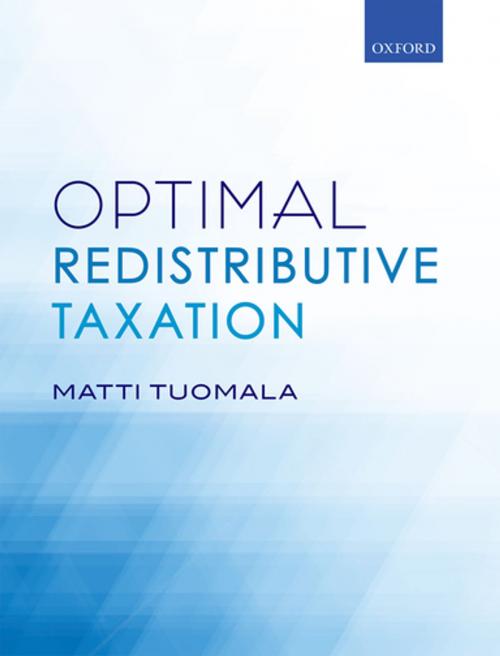| Author: | Matti Tuomala | ISBN: | 9780191067747 |
| Publisher: | OUP Oxford | Publication: | January 21, 2016 |
| Imprint: | OUP Oxford | Language: | English |
| Author: | Matti Tuomala |
| ISBN: | 9780191067747 |
| Publisher: | OUP Oxford |
| Publication: | January 21, 2016 |
| Imprint: | OUP Oxford |
| Language: | English |
Tax systems raise large amounts of revenue for funding public sector's activities, and tax/transfer policy, together with public provision of education, health care, and social services, play a crucial role in treating the symptoms and the causes of poverty. The normative analysis is crucial for tax/transfer design because it makes it possible to assess separately how changes in the redistributive criterion of the government, and changes in the size of the behavioural responses to taxes and transfers, affect the optimal tax/transfer system. Optimal tax theory provides a way of thinking rigorously about these trade-offs. Written primarily for graduate students and researchers, this volume is intended as a textbook and research monograph, connecting optimal tax theory to tax policy. It comments on some policy recommendations of the Mirrlees Review, and builds on the authors work on public economics, optimal tax theory, behavioural public economics, and income inequality. The book explains in depth the Mirrlees model and presents various extensions of it. The first set of extensions considers changing the preferences for consumption and work: behavioural-economic modifications (such as positional externalities, prospect theory, paternalism, myopic behaviour and habit formation) but also heterogeneous work preferences (besides differences in earnings ability). The second set of modifications concerns the objective of the government. The book explains the differences in optimal redistributive tax systems when governments - instead of maximising social welfare - minimise poverty or maximise social welfare based on rank order or charitable conservatism social welfare functions. The third set of extensions considers extending the Mirrlees income tax framework to allow for differential commodity taxes, capital income taxation, public goods provision, public provision of private goods, and taxation commodities that generate externalities. The fourth set of extensions considers incorporating a number of important real-word extensions such as tagging of tax schedules to certain groups of tax payers. In all extensions, the book illustrates the main mechanisms using advanced numerical simulations.
Tax systems raise large amounts of revenue for funding public sector's activities, and tax/transfer policy, together with public provision of education, health care, and social services, play a crucial role in treating the symptoms and the causes of poverty. The normative analysis is crucial for tax/transfer design because it makes it possible to assess separately how changes in the redistributive criterion of the government, and changes in the size of the behavioural responses to taxes and transfers, affect the optimal tax/transfer system. Optimal tax theory provides a way of thinking rigorously about these trade-offs. Written primarily for graduate students and researchers, this volume is intended as a textbook and research monograph, connecting optimal tax theory to tax policy. It comments on some policy recommendations of the Mirrlees Review, and builds on the authors work on public economics, optimal tax theory, behavioural public economics, and income inequality. The book explains in depth the Mirrlees model and presents various extensions of it. The first set of extensions considers changing the preferences for consumption and work: behavioural-economic modifications (such as positional externalities, prospect theory, paternalism, myopic behaviour and habit formation) but also heterogeneous work preferences (besides differences in earnings ability). The second set of modifications concerns the objective of the government. The book explains the differences in optimal redistributive tax systems when governments - instead of maximising social welfare - minimise poverty or maximise social welfare based on rank order or charitable conservatism social welfare functions. The third set of extensions considers extending the Mirrlees income tax framework to allow for differential commodity taxes, capital income taxation, public goods provision, public provision of private goods, and taxation commodities that generate externalities. The fourth set of extensions considers incorporating a number of important real-word extensions such as tagging of tax schedules to certain groups of tax payers. In all extensions, the book illustrates the main mechanisms using advanced numerical simulations.















